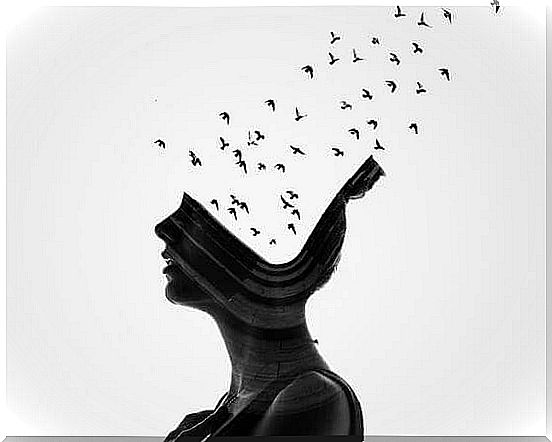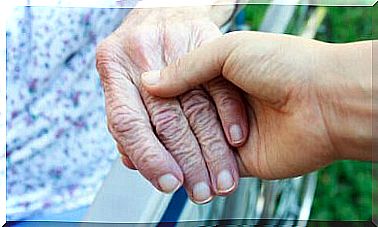7 Tips For Coping With An Emotional Loss

The affective dimension has to do with the approach or positive disposition towards something or someone. It is a state of empathy that involves the universe of emotions. Its existence imposes stages of suffering, such as emotional loss, which can only be overcome through grief. Here we will give you some recommendations that can help you to overcome these painful experiences.
Let’s start by clarifying that grief involves a process in which one seeks to balance emotions after a loss of love. This grief process progresses in a context marked by pain, denial, sadness, confusion, anger and guilt.
This later gives way to resignation and reconstruction. A well resolved grief will strengthen us in the face of other adversities and give us an experience that allows us to lead a happier and healthier life.
When you go through an affective loss, your emotions are more intense and deeper. Affective losses can be diverse: the death of a family member or a very close person, the end of their love relationship, the appearance of a catastrophic illness such as cancer, job loss and even retirement are some examples.
General aspects of affective loss
An important aspect to consider is that the more unexpected an emotional loss, the more difficult it will be to overcome the grief. Let’s look at this with an example. A close friend gets sick and his condition gets more and more complicated. His gradual deterioration is evident and he ends up dying. This news would not surprise you. But if we learn that a friend we talked to yesterday passed away today in a car accident, the impact will be greater and harder to overcome.

During the process of overcoming emotional loss, self-destructive behaviors may appear as a reaction to the pain experienced. Such behaviors can be associated with excesses and obsessive thoughts.
In general, this is because we were not aware of the degree of dependence we had on someone, and when loss comes that part of us dies with the other person. So we feel invalid.
Normally, when people go through a grieving stage, they experience a lack of interest in the things they once enjoyed. In some cases, they go to excess in the consumption of food, medication or alcohol as a resource to create distance from the pain, but with this they only make the situation worse.
4 key tips to take on affective loss
These are the 4 basic recommendations for coping with an affective loss. These are positive actions to prevent grief from taking a wrong turn. These are elements you need to apply to move forward.

- The grieving process takes time, the wounds will gradually heal, and this is one thing you cannot rush. Grief needs to be assumed, sooner or later. And the worst decision you can make is to take shortcuts to ease the pain or try to ignore it.
- In case the mourning obeys an affective loss due to the death of someone close, it is not good to hide the affliction and avoid talking about the deceased. Contrary to what you might think, talking about a missing person brings relief. It also helps in the healthy evolution of grief.
- When the pain seems to get worse and turns into a crisis, you may feel the urge to hurt yourself or even have thoughts of suicide. In this case, the best thing is to share your thoughts with someone you trust or seek therapeutic help.
- There is no right or wrong method to overcome grief. This process takes place in stages and has no specific development time. It will depend on each person and the type and intensity of the loss. There might even be times when you feel like you can’t handle it, but you can. Remember times in the past when you had that same feeling.
3 additional tips
In addition to the above recommendations, there are other aspects that are important to successfully face an emotional loss. They mainly have to do with the management of emotions and subjective perceptions.

- It is important to express emotions : this frees us and relieves the load we carry. That is why you must not suppress the desire to cry, to discharge the physical energy that has accumulated as a result of frustration. Sometimes it’s enough to talk to someone. As time goes by, the feeling will be less painful.
- When the pain is unbearable and you are stuck at this point, the best thing is to seek professional help. This will give you the support and knowledge you need to move through your loss process. In some cases, additional complications arise, such as the appearance of diseases as a result of the somatization of the conflict.
- As unfair as it seems, life goes on. It is an almost natural imposition to go on with your life and try not to abandon your studies or work, the care of your pet, the practice of a sport. Try not to escape your emotions and try to do the things you would normally do. But mostly, don’t feel guilty about feeling good.
The end of something is the beginning of something else. Behind the suffering may hide greater well-being. You may not be able to see it at first and you may have to wait a while to see it. Affective loss is a moment of crisis in which we can find our true inner strength. Suffering can turn into security and confidence to continue to risk existing and loving.
Images courtesy of Ricor, Three Sisters.









